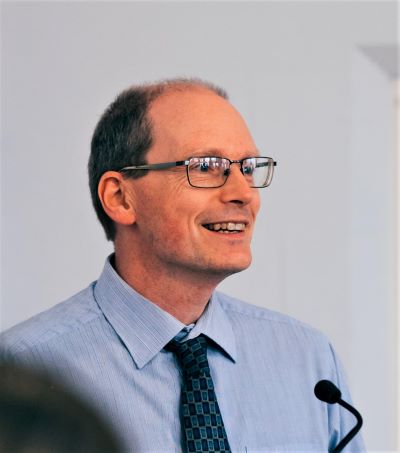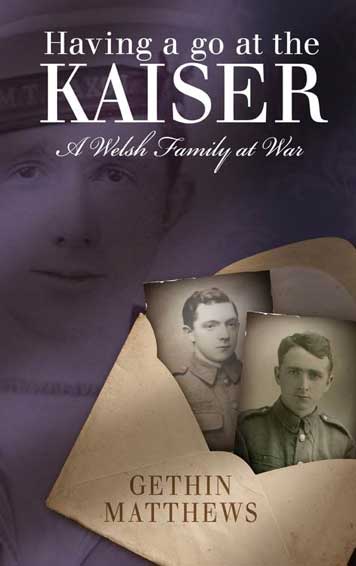-
FY-018
History, Memory and the Creation of Identity
In most human societies, history and memory are important in the creation of identity. For example, consider how recent political debates often involve debates about the relevance of particular strands of history (such as `empire¿) to modern society. This module explores these relationships from the ancient societies of Egypt, Greece, and Rome to the modern world. It is designed to provide Foundation Year students intending to pursue degrees in Classical Studies, Ancient History, Ancient History & Egyptology, American Studies, Medieval Studies, or History with an opportunity to reflect critically on what the past means and how we go about studying it.
-
HI-M22
Dissertation
This module is the exciting culmination of your Masters¿ degree in History. In this module you have the opportunity build on the analytical and research skills developed in Part I of the programme to produce a 20,000-word dissertation on a historical research topic of your choice.
Working under the guidance of an academic supervisor, you will identify and refine a research question, critically evaluate relevant primary and secondary sources, and construct a coherent, well-substantiated historical argument. The project reflects an advanced level of conceptual understanding and methodological rigour, characteristic of independent postgraduate research.
-
HIH121
Europe of Extremes, 1789-1989
The nineteenth century saw the rise of a western European civilization, characterized, as Eric Hobsbawm has noted, by capitalist economics, liberal politics, and the dominance of a middle class that celebrated morality and science. In the twentieth century this civilization faced unprecedented challenges from new political ideologies, and from a working class demanding the right to govern in its own name. The result was an eruption of violence not seen on the continent for centuries; in its wake, the Cold War divided the Europe with an Iron Curtain, and saw the continent become the client of two world superpowers ¿ the USA and the Soviet Union. This team-taught module relies on the specialist knowledge of its tutors to examine economic, political and social themes in the history of nineteenth and twentieth-century Europe.
-
HIH122
Making History
How do historians study the past? Why do their accounts of the past differ, and why do they change over time? This module will help you to understand the various concepts, methods, and approaches that academic historians use when writing history and generating historical explanations. By the end of it, you will understand how and why professional historians disagree on many topics, and you will be equipped to evaluate competing interpretations of the same past events and processes.
The module also trains you in the fundamental skills required to study history as an undergraduate, and gives you an opportunity to learn more about the interests and expertise of the history staff you¿ll be working with at Swansea. It will help you make the transition from being taught history at school or college to studying history at university, and it will introduce you to the many different kinds of history you can explore in the course of your degree.
-
HIH122W
Creu Hanes
Sut mae haneswyr yn astudio'r gorffennol? Pam bod eu fersiynau o'r gorffennol yn amrywio a pham ydynt yn newid dros amser? Bydd y modiwl hwn yn eich helpu i ddeall y cysyniadau, y dulliau a'r ymagweddau gwahanol y mae haneswyr academaidd yn eu defnyddio wrth ysgrifennu hanes a chreu esboniadau hanesyddol. Erbyn diwedd y modiwl, bydd gennych ddealltwriaeth o sut a pham bod haneswyr proffesiynol yn anghytuno ar lawer o bynciau a bydd modd i chi werthuso dehongliadau cyferbyniol o'r un digwyddiadau a phrosesau o'r gorffennol.
Mae'r modiwl hefyd yn eich addysgu am y sgiliau sylfaenol angenrheidiol i astudio hanes fel myfyriwr israddedig ac mae'n rhoi cyfle i chi ddysgu mwy am ddiddordebau ac arbenigedd y staff hanes y byddwch chi'n gweithio gyda nhw yn Abertawe. Bydd yn eich helpu i bontio o bwnc sy'n cael ei addysgu yn yr ysgol neu'r coleg i astudio hanes yn y brifysgol a bydd yn eich cyflwyno i'r mathau gwahanol o hanes y gallwch chi eu harchwilio yn ystod eich cwrs gradd.
How do historians study the past? Why do their accounts of the past differ, and why do they change over time? This module will help you to understand the various concepts, methods, and approaches that academic historians use when writing history and generating historical explanations. By the end of it, you will understand how and why professional historians disagree on many topics, and you will be equipped to evaluate competing interpretations of the same past events and processes.
The module also trains you in the fundamental skills required to study history as an undergraduate, and gives you an opportunity to learn more about the interests and expertise of the history staff you¿ll be working with at Swansea. It will help you make the transition from being taught history at school or college to studying history at university, and it will introduce you to the many different kinds of history you can explore in the course of your degree.
-
HIH124
Britain and the World 1800 to 2000
This module will provide an overview of the history of British politics, society, culture, and the economy from c. 1800 to the present, from a national and international perspective. The lectures and seminars for this module will give students the opportunity to engage closely with events, processes, and people - both male and female, from diverse ethnic backgrounds - who contributed to the making of the modern British state and society, and who defined Britain¿s relationship with the wider world. We will discuss the transformative impact of warfare, Empire and colonialism, industrial and technological change. We will also consider the significance of race, class, and gender, and how they relate to national sentiment and social and political emancipation movements in Britain and beyond.
-
HIH201W
Rhyfel Cartref America
Bydd y modiwl yma yn ffocysu ar Rhyfel Cartref America, un o ddigwyddiadau ffurfiannol yr Unol Daleithiau sydd dal a¿i effaith i deimlo heddiw. Mae¿r themau a drafodir yn cynnwys caethwasiaeth, cenedlaetholdeb, hanes filwrol, personoliaeth a dylanwad Lincoln, a dylanwad y rhyfel ar y Cymry Cymraeg. Bydd y cwrs felly yn trafod amryw o agweddau ar y Rhyfel Cartref, a cefnogi hwn gyda thrafodaeth o ffynonellau cynradd.
Gan ddechrau yn yr 1850au a cynnig amlinelliad o wlad a gwleidyddiaeth yr Unol Daleithiau, bydd y cwrs yn symud ymlaen i drafod gwahaniaethau rhwng y Gogledd a¿r De a¿r rhesymau am ddechreuad y rhyfel. Ar ol trafod ystod eang o themau a hanes milwrol y rhyfel, daw¿r cwrs i ben wrth amlinellu effeithiau¿r rhyfel a¿r Adluniad (Reconstruction).
Bydd profiad pobol Duon, yn cynnwys caethwasiaeth a¿u profiad nhw o¿r rhyfel, yn thema ganolog trwy gydol y cwrs. Byddwn hefyd yn ystyried yn agos profiad y Cymry o¿r rhyfel, yn adeiladu ar waith Jerry Hunter a Gethin Matthews a chymryd mantais o¿r dewis eang o ffynonellau cynradd sydd ar gael yn y Gymraeg. Felly ynghyd a chynnig styriaeth ddwfn o un o ddigwyddiadau pwysicaf hanes America, bydd y cwrs hefyd yn annog ystyriaeth o¿r hanes yma o safbwynt Cymraeg a Chymreig.
-
HIH237
The Practice of History
The purpose of the module is to encourage you to think more deeply about how historians work and, in particular, about how we as historians can locate and use primary historical sources effectively as a means of interpreting and understanding the past. During the module we will learn about the survival of historical evidence, how it is organised and made accessible to historians to undertake their research, and how to effectively locate and interpret it in your studies. We will consider how the process of doing historical research changes over time, in particular with the impact of recent developments like digitization.
At the core of the module will be the work you undertake with others in your seminar group using a range of primary sources which your seminar tutor will introduce to you. As part of the module assessment you will also undertake your own primary source based research project using items from these collections. The module is designed strengthen your analytical skills and to help prepare you for the more extensive uses of primary evidence which you will encounter in final year special subjects and dissertation.
-
HIH293
The Global First World War
To what extent (if at all) did the First World War transform modern societies? This module engages with this key question by examining the totality of the First World War ¿ a conflict viewed by many as the first `total war¿ - and its impact on the modern world. The causes, course and consequences of the conflict are explored though a range of approaches: military, political, economic, social, cultural, technological, moral and legal.
-
HIH300W
Concro'r Byd: Twf a Chwymp Ymerodraethau Prydain a Ffrainc
Yn ystod y bedwaredd ganrif ar bymtheg fe ledaenodd ymerodraethau Prydain a Ffrainc (a gwledydd eraill Ewrop) ar draws y byd. Erbyn dechrau¿r Rhyfel Mawr roedd y rhan fwyaf o wledydd y byd yn rhan o ymerodraeth Ewropeaidd. I drigolion y gwledydd a feddai ar ymerodraeth (ac yn bennaf Prydain a Ffrainc) roedd mawredd eu hymerodraeth yn achos balchder, ac yn rhan bwysig o¿u hunaniaeth. Fodd bynnag, yn ail hanner yr ugeinfed ganrif fe ddatgymalwyd yr ymerodraethau mawr Ewropeaidd, gyda chanlyniadau pellgyrhaeddol ar gyfer cymdeithas a diwylliant ym Mhrydain a Ffrainc.
Bydd y modiwl hwn yn archwilio effeithiau oes yr ymerodraethau ar gymdeithas a diwylliant yn Ffrainc a Phrydain (ac yng Nghymru yn benodol). Byddwn yn ystyried sut y treiddiodd syniadau ymerodraethol trwy gydol diwylliant y gwledydd hyn, gan edrych er enghraifft ar sut yr oedd pobloedd `eraill¿ yn cael eu portreadu mewn cyhoeddiadau Cymraeg. Yna byddwn yn archwilio¿r cyfnod wedi¿r Ail Ryfel Byd pan chwalwyd yr ymerodraethau, er bod rhai o¿r syniadau a ddaeth yn eu sgil yn parhau. Felly byddwn yn olrhain tranc poenus yr Ymerodraeth Ffrengig yn Indo-Tseina ac Algeria.
-
HIH3300
History Dissertation
The History dissertation is a free-standing, 40-credit module that runs across both semesters of Level Three. Candidates conduct research upon a subject of their choice, devised in consultation with a member of staff teaching for the degrees in History, and concerning a topic that falls within staff research and teaching interests.
-
HIH3376
Histories of Empire
Throughout most of history up until the middle of the twentieth century, the majority of the world¿s population were subjects of an empire. From the empires of the Ancient World through to the European colonial networks of the nineteenth and twentieth centuries, these empires have straddled continents and brought people from different ethnicities and cultures under the rule of Caesars, kings and emperors. Despite the clear distinctions between empires in different time-periods and continents, these organisations share a range of similarities in their operation and guiding principles. Some phenomena such as the `civilising mission¿ and `imperial over-reach¿ can be seen in a variety of circumstances down the centuries. Many empires can be said to have followed the same trajectory, rising from the ashes of previous empires, conquering territories and defending them jealously from rivals, and ending in a hubris-driven collapse.
This module will look at the growth, management and decline of a range of empires, with a particular focus upon the modern period. It will compare the operation of empires, both across time and synchronically. A range of themes will be covered, including the machinery of rulership over different parts of an empire; the treatment of subjected peoples; issues of race and racial hierarchies; the role of technology; profit and empire; the philosophical underpinnings of empire; popular ideas about imperialism and the aftermath of empire.



